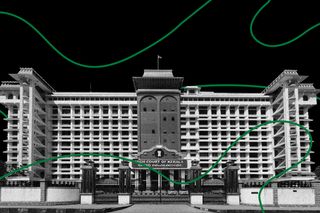Yesterday, the Kerala High Court emphasized the importance of treating survivors and witnesses with empathy while hearing a sexual assault survivor’s request for police protection. The plea noted how the complainant was forced to go into hiding due to harassment by not just the accused, but also by police officers.
While deciding the present case, Justice Devan Ramachandran referred to another instance of misbehavior by the police in Kerala, which led to the death of the survivor.
Last week, Mofiya Parveen, a 21-year-old law student, died by suicide. In her suicide note, she blamed her husband and in-laws for dowry harassment and domestic violence; she also named a police officer, who misbehaved with her when she tried to lodge a complaint against her family members. “People often do horrible things when they are spurned by the first authority (usually the police) which they approach, as we saw recently,” Justice Ramachandran said, highlighting the deleterious impact the apathy of police officials can have on survivors. It serves to discourage them from coming forward with their complaints and seeking justice.
Both of the instances — of Mofiya and the present complainant– speak to the lack of empathy that reflects in the attitude of the police towards survivors of crimes against women. “A lot of government officials, especially [the] police, allow negative and damaging stereotypes of rape survivors being promiscuous to interfere with their duties… So when a rape survivor comes forward and tries to make a complaint at the police station, they often face hostility or skepticism about what they have experienced,” Aruna Kashyap, women’s rights researcher for Human Rights Watch, told Reuters in 2013.
Evidently, not much has changed since. But with the fatal, and almost criminal, apathy of the police towards Mofiya still fresh on people’s minds, Justice Ramachandran highlighted the importance of treating survivors with empathy.
Related on The Swaddle:
Marital Rape Is a Valid Ground for Claiming Divorce, Kerala HC Says in Landmark Judgment
Mofiya’s suicide sparked a reckoning in recent memory. “Who are you to teach me law? I know what needs to be done,” C.L. Sudheer, the cop who was suspended on Friday, had told Mofiya. According to reports, it is the police officer’s conduct that made justice seem inaccessible to her — ultimately prompting her to take her own life.
Not only did the police refuse to act on Mofiya’s complaint, but the officer in question also insulted and mocked Mofiya when she tried to speak to him. Reportedly, her emotional state following the interaction led her to seek “ideal punishment for [the cop for] not listening to her complaints of domestic violence and harassment by her husband,” The New Indian Express reported.
The hostility Mofiya faced attests to reports of police officers dissuading domestic violence survivors from filing complaints in one way or another. “[The police] think it is their responsibility to keep the family together, and in doing so, they dole out advice which borders thinly on threats for the woman to compromise, adjust and so on,” Brinda Adige, a Bengaluru-based feminist activist and volunteer-mentor at Global Concerns India, an NGO, told The News Minute last year.
The idea of empathy as one facilitating justice in crime is imperative. Research suggests the police are more likely to be trusted and considered an effective instrument of justice when they exhibit empathy towards individuals, who have already been wronged. This highlights the pertinence of including “empathy training” in the curriculum for police officers — besides, of course, training them on how to help survivors of domestic violence and sexual harassment without traumatizing them further.
In the present complaint, too, the court noted the liaison officer with the police did little to help the survivor. The bench has directed the officer to “advise her about her rights and the legal procedures that would come, while ensuring her identity is not exposed and she is not subjected to further disrepute,” according to a report.




